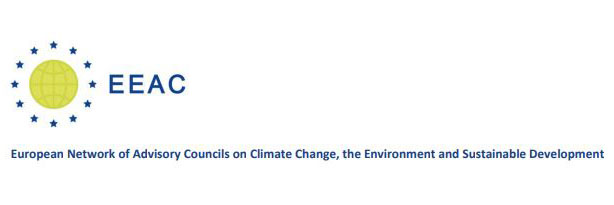The effects of COVID19: Towards a sustainable "new normal"

Arnau Queralt-Bassa
Chair of the European network of Advisory Councils on Climate Change, the Environment and Sustainable Development (EEAC)
Over the past weeks, many institutions have released analysis and opinions on the origin of the pandemics and its impacts, but also on the ways to get out of this global crisis. This is the case of the Advisory Council for Sustainable Development of Catalonia (CADS) and the European network of Advisory Councils on Climate Change, the Environment and Sustainable Development (EEAC), a network of 17 advisory bodies from 13 European countries and regions established by national or regional governments and parliaments. This article contains the most essential aspects highlighted in their reflections.
The World is living through a situation without parallel in recent history. We are still shocked by the figures: on 30th April 2020, the number of victims has exceeded 227.000 and confirmed cases have risen to more than 3 million (real ones are estimated to be many times higher). Although in some countries the curve of new infections -and the number of deaths- seems to decrease, the future is still uncertain. So far, the COVID-19 has had significant economic and social impacts, such as lost income, lost jobs, unemployment, increasing healthcare costs and rising debt, along with the many socio-psychological problems that have accompanied the drastic protection measures. The COVID-19 crisis is uncovering the growing inequalities and tensions within many of our own communities and societies, both locally and globally.
The world has never seen a pandemic caused by a coronavirus and, with all probability, it will not be the last. A hundred years have passed since the influenza of 1918, the last great pandemic to affect humanity. However, the risk of a pandemic caused by an infectious agent had already been recognised. The first report on global preparedness for health emergencies released in in autumn 2019 by the Global Preparedness Monitoring Board warned that humanity was at risk from an epidemic equivalent to that of the so-called Spanish Flu of 1918 . However, health systems worldwide are still under-prepared for significant outbreaks of other emerging infectious diseases, as highlighted in the 2020 edition of the World Economic Forum Global Risks Report .
The Covid19 outbreak is as a warning to humanity. It is not just a health pandemic, but a multiple crisis: a crisis of loss of integrity of the biosphere, a crisis of human health, a crisis of lack of preparedness, a crisis of social inequalities, a crisis of the current model of globalisation, a crisis of a global economic system that has no plans and means. The Covid19 pandemic and its aftermath will probably bring about changes in values, rules and societal and economic systems. We do not know what these changes will entail, but it is clear that the pandemic will force us to reinterpret the world and the way we live.
The way out of this crisis lies in curtailing degradation of nature and fostering an economy that serves humanity while respecting the biophysical limits of the planet. That is, a circular, carbon-neutral economy that helps to achieve the Paris Agreement’s climate change goals and reverse the accelerated process of biodiversity loss. Given the impact of the crisis on socially vulnerable population, there is no other alternative than building an inclusive economy, which promotes dignified work and, therefore, leaves no one behind. Structural solutions need to be found for solving problems such as the lack of access to housing, the black economy, the growing unemployment and the prevalence of temporary work contracts. Better funding is needed for public health and social care systems, especially for older people, as well as for research.
In short, the “new normal” after the recovery from the COVID19 must be built on sustainable foundations. There are serious constraints: (1) the fast growth of world population (potentially reaching 9.7 billion people by 2050), half of which will reside in just nine countries; (2) the increase in the number of people living in cities (between 2025 and 2030 it’s estimated that 40 cities with more than 10 million inhabitants each will be home to 630 million people); and (3) the increasing resource consumption globally.
Despite the emergence of COVID-19, the 17 Sustainable Development Goals (SDGs) of the 2030 Agenda should be the compass to guide us to overcome the current crisis, improve our resilience as a society and help the planet. In a very short time, the fight against the pandemic has activated essential elements such as innovation, non-profit public-private partnerships, large-scale citizen solidarity, and monumental social and individual behavioural changes. All of these elements have a pivotal role to play in our efforts to meet the SDGs, confirming that meeting them is not only necessary but also more achievable than ever.
In times of COVID19, the SDGs show us the path for a sustainable recovery: we must not place them in lockdown!
More information
© All rights reserved ORU. Barcelona 2025








































































